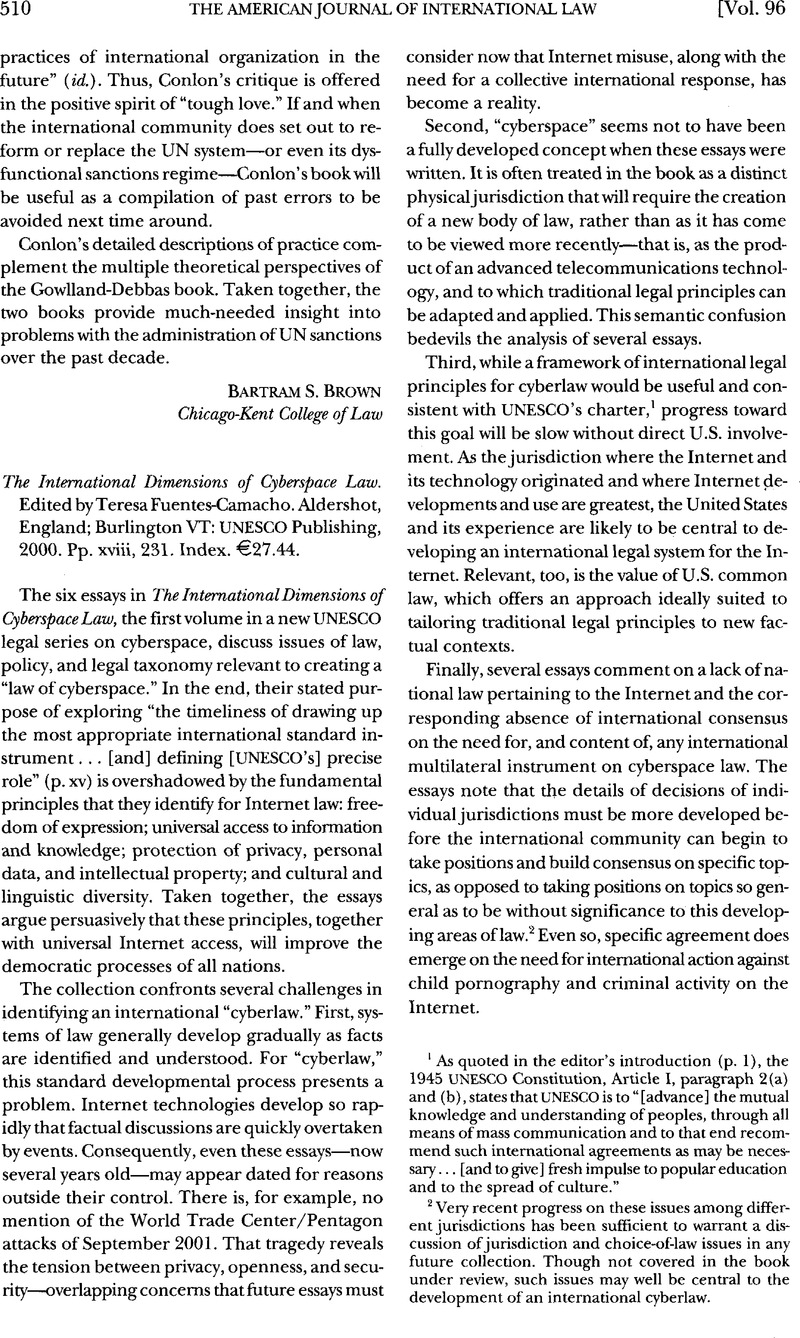No CrossRef data available.
Published online by Cambridge University Press: 27 February 2017

1 As quoted in the editor’s introduction (p. 1), the 1945 UNESCO Constitution, Article I, paragraph 2(a) and (b), states that UNESCO is to “ [advance] the mutual knowledge and understanding of peoples, through all means of mass communication and to that end recommend such international agreements as may be necessary ... [and to give] fresh impulse to popular education and to the spread of culture.”
2 Very recent progress on these issues among different jurisdictions has been sufficient to warrant a discussion of jurisdiction and choice-of-law issues in any future collection. Though not covered in the book under review, such issues may well be central to the development of an international cyberlaw.
3 Hultmark acknowledges this development, yet sees it as of only limited impact:
Technology may help in securing evidence of the identity of the sender of an electronic message. The new techniques produce more cogent evidence, thereby making it possible to secure predictable and rapid judgements. To some extent, strong technical evidence replaces the social pressure on members of society to behave in accordance with the law. Despite this, the judiciary’s role as supporter of good morals on the Internet is very limited. (Pp. 222-23)